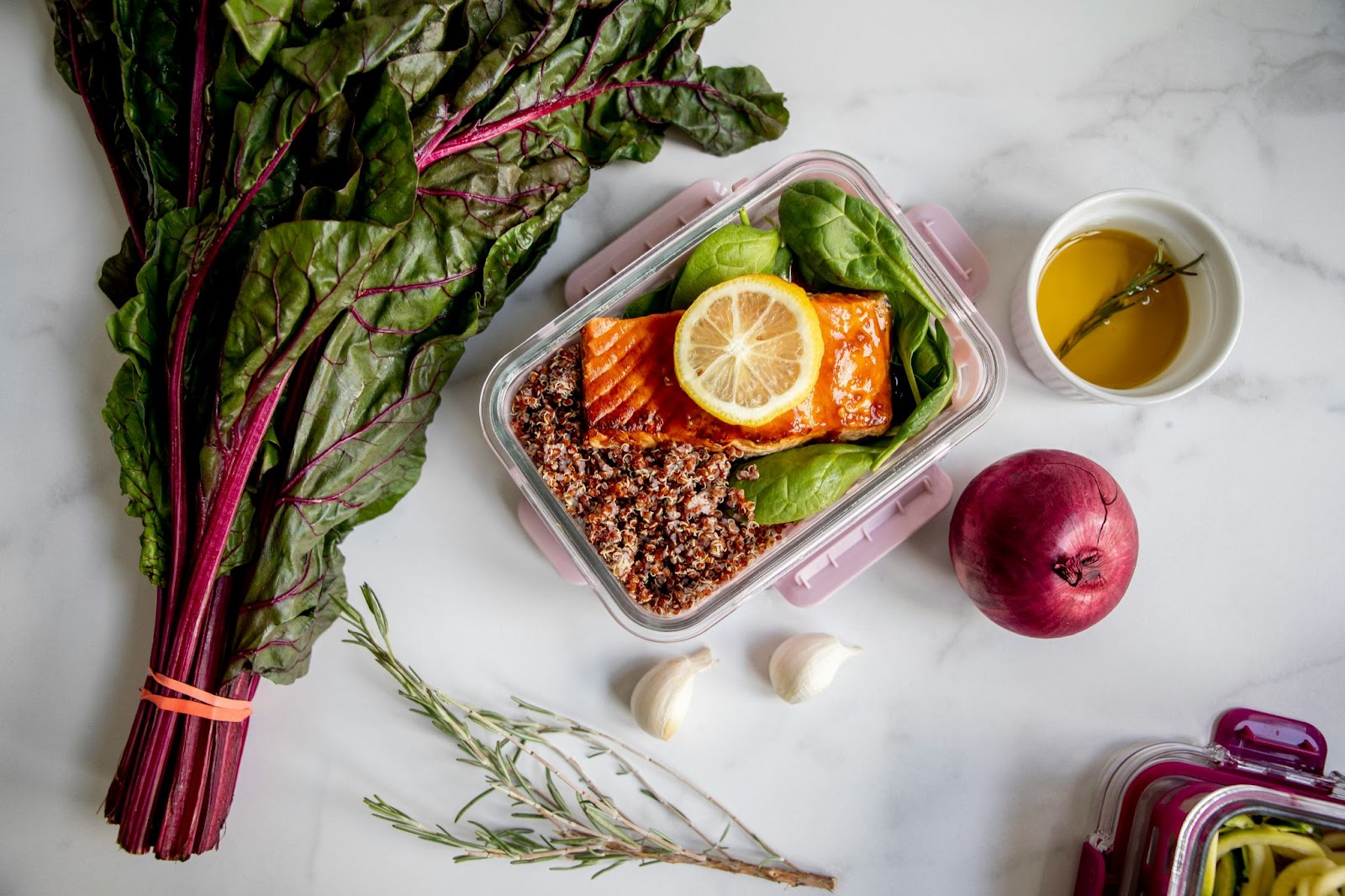If you're exploring the meal prep industry, you've seen the headlines. It's a booming market projected to more than double from $5.68 billion in 2024 to an incredible $12.89 billion by 2033. But you've also noticed something else: the game is changing.
The era of one-size-fits-all meal kits is maturing. Competing with the giants on variety and price is a losing battle. The real opportunity—the sustainable, profitable future of this industry—lies in specialization.
Data from successful meal prep operators shows that specialized businesses achieve 35% higher customer lifetime value and 60% lower customer acquisition costs compared to generalist competitors.
As Melanie Geist discovered with her specialized approach: "People are really savvy at picking out which things are just marketing and which things are like, 'Oh, these two businesses that I'm both interested are now working together' and that tells them a lot about you."
For operators ready to scale, the question is no longer "Should I start a meal prep business?" but "Which high-value niche can I dominate?"

The first wave of meal prep companies proved the model. They taught consumers to value convenience. But their broad approach created gaps in the market—gaps that specialized businesses are now rushing to fill.
Today's most successful customers aren't just looking for a meal; they're looking for a solution. They are educated, have higher incomes (nearly 60% earn over $80k a year), and make decisions based on nuanced factors like health outcomes, specific dietary compliance, and ethical considerations.
They are actively searching for services that cater to their unique needs, and they are willing to pay for expertise. This is where you come in.
Winning in today's market means identifying an underserved audience and building a service that feels like it was designed just for them. Here are the most promising niches with significant market potential.
This is one of the most defensible and fastest-growing areas. Customers in this segment aren't just choosing a diet; they're following a medical protocol. Trust and precision are non-negotiable.
Market Drivers: Rising rates of chronic illness, growing awareness of food's role in managing disease, and recommendations from healthcare professionals.
Examples:
Operational Challenge: Requires strict nutritional accuracy, potential consultation with dietitians, and zero cross-contamination risk. This isn't a niche you can enter casually.
For millions of people, finding safe food is a constant struggle. A dedicated allergen-free service isn't just a convenience; it's a lifeline.
Market Drivers: Soaring rates of food allergies (especially Celiac disease, dairy, and nut allergies). The primary decision factor is safety.
Examples:
Operational Challenge: Demands impeccable supply chain management and kitchen protocols to guarantee safety. Your marketing is built on trust, which is earned through operational excellence.
These niches target customers at specific life stages, offering solutions that simplify a uniquely challenging time.
Market Drivers: Life events that disrupt normal routines and increase the need for extreme convenience.
Examples:
Operational Challenge: Requires menu flexibility and deep empathy for the customer's life situation. Your messaging must resonate with their specific pain points.
Why sell to one customer at a time when you can sell to an entire organization? The B2B meal prep market is a massive, underserved opportunity.
Market Drivers: Corporations looking for wellness perks, hospitals aiming to improve patient outcomes post-discharge, and gyms wanting to offer holistic fitness solutions.
Examples:
Operational Challenge: Involves longer sales cycles, contract negotiations, and the need for logistics that can handle bulk orders and delivery to a central point.
Choosing the right niche is only half the equation. You need a business model that aligns with your target customer and operational strengths.
The classic model, but with crucial updates. Modern subscription services thrive on flexibility.
How it Works: Customers sign up for recurring weekly or monthly deliveries.
Pros: Predictable, recurring revenue makes forecasting easier.
Cons: Can have higher churn if customers feel "locked in."
Best for Niches: Medical, Fitness, and Allergen-Free, where consistency is key to the customer's lifestyle.
Modern Tweak: Offer easy-to-use portals for skipping weeks, swapping meals, and pausing accounts. The control you give customers is directly related to how long they stay.
This model offers ultimate flexibility, meeting customers wherever they are on the convenience spectrum.
How it Works: Offer a mix of ready-to-eat meals for busy nights, meal kits for weekends, and curated grocery add-ons (like sauces or snacks).
Pros: Increases average order value and caters to multiple needs within one household.
Cons: Operationally complex. Managing inventory for three different product types requires a robust back-end system.
Best for Niches: Busy Families and general wellness consumers who value choice.
This isn't just about having a website; it's about using technology to create a superior customer experience and a hyper-efficient operation.
How it Works: Leverages AI for meal recommendations, automates SMS for cart recovery and delivery updates, and uses data to optimize everything from production schedules to delivery routes.
Pros: Creates a "sticky" customer experience and significantly reduces manual labor, allowing you to focus on growth.
Cons: Requires investment in the right platform.
Best for Niches: Any niche can benefit, but it's essential for scaling. To serve hundreds of clients in a medical niche or manage complex B2B orders, you must build your business with software designed for the job. Generic e-commerce tools will break.
For a growing segment of consumers, how their food is produced and delivered matters as much as the food itself.
How it Works: Prioritizes local sourcing, uses zero-waste or reusable packaging, and optimizes for carbon-neutral delivery.
Pros: Creates a powerful brand story and deep loyalty with environmentally conscious consumers.
Cons: Can increase costs for packaging and sourcing.
Best for Niches: Plant-Based, Farm-to-Table, and general wellness niches targeting eco-aware millennials.

Focusing on a niche isn't just about better marketing—it's about building a healthier, more profitable business. The data is clear: established meal prep businesses can achieve gross margins of around 35% with an average revenue of $2.22 million per year.
Specialization is the path to these numbers. A niche allows you to:
Command Higher Prices: You're not selling a commodity; you're selling expertise and a specialized solution.
Lower Customer Acquisition Costs: Your marketing is hyper-targeted, speaking directly to the pain points of a well-defined audience.
Increase Customer Lifetime Value: When you solve a critical need (like managing a medical condition), your customers stay with you longer.
Melanie Geist's approach demonstrates the power of authentic community building: "Making authentic connections in the community... building actual authentic connections in the community with people that are like minded because we know that we're going to want to connect with their people and do something valuable with them. And that's served us well."
This strategy works because specialized audiences value trust and community over broad appeal and generic marketing.
Megan Scott of Planted Table's experience with targeted marketing reinforces this: "Get me in a room with 10 gym members and I can get three really good new customers. We can do huge kind of street fair events where I talk to 500 people and we'll get none... For us personally, if I can get in a room with good people who are actually going to retain the information, we'll get some good customers."
The lesson? Specialized businesses thrive on deep connections within their target communities, not broad-reach marketing.
Your Passion & Expertise: Which customer problem do you genuinely understand and feel driven to solve?
Market Access: Do you have a natural entry point into a specific community (e.g., local gyms, a network of dietitians)?
Operational Complexity: Do you have the resources and systems to handle the demands of a high-stakes niche like medical or allergen-free?
Profitability Potential: Does the niche have customers willing to pay a premium for a tailored solution?

Is the meal prep market too saturated?
No. The general market is crowded. The market for specialized solutions is wide open. Saturation is a problem for businesses that try to be everything to everyone. Specialists who solve a specific, hard problem face far less competition.
Can I really compete with giants like HelloFresh or Factor?
Yes—by refusing to play their game. They compete on scale, logistics, and massive marketing budgets. You compete on expertise, trust, and community. A person with a serious nut allergy isn't choosing HelloFresh; they're looking for a dedicated nut-free kitchen they can trust with their life. That is a competition you can win.
What is the single biggest mistake new meal prep businesses make?
They underestimate the operational complexity. They try to manage hundreds of custom orders, subscriptions, and delivery logistics using spreadsheets and generic e-commerce plugins. It quickly leads to chaos, errors, and burnout. Successful niche businesses are built on a technology foundation designed specifically for the unique challenges of meal prep.
The meal prep industry is undeniably moving toward specialization. The businesses that will thrive in the coming years are the ones that plant their flag in a well-defined niche, build a business model to serve it flawlessly, and become the undisputed expert in their chosen field.
It requires focus, dedication, and the right tools to manage the complexity. But for operators ready to build a meaningful, profitable business, the opportunity has never been greater.
Ready to explore how your vision fits into the future of meal prep? Connect with our Launch Accelerator program and discover the path from idea to a thriving, specialized business with expert coaching designed specifically for meal prep operators.
The meal prep gold rush created the market. The age of the specialist will define who wins it.
In a world of generic solutions, specialists win. Choose your niche, master your craft, and build the business that customers can't find anywhere else.
Book your free strategy session with a meal prep growth advisor. We’ll discuss:



Book a call with a Bottle Meal Prep Advisor